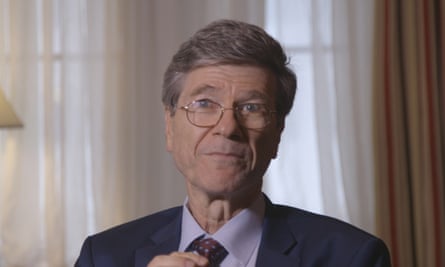A “tech tax” is necessary if the world is to avoid a dystopian future in which AI leads to a concentration of global wealth in the hands of a few thousand people, influential economist Dr Jeffrey Sachs has warned.
Speaking to the Guardian, Sachs backed calls for taxation aimed at the largest tech companies, arguing that new technologies were dramatically shifting the income distribution worldwide “from labour to intellectual property (IP) and other capital income.”
“So rather than cutting capital income taxation, as we’ve been doing in a race to the bottom, we ought to be finding ways to tax capital income and IP income,” Sachs added.
“Things like the proposed tech tax are actually a very good idea. The specific form of it is debatable, but the idea is that five companies are worth $3.5tn, basically because of network externalities and information monopolies, and therefore are absolutely right for efficient taxation.”
Sachs is in London to speak at an event organised by the Alan Turing Institute, the UK’s national institute for data science and artificial intelligence. There, he will argue that artificial intelligence can only achieve its potential if its use is determined not by the pressures of private competition, but by a desire to serve the public interest.

“I think there’s a general sense that somehow we’re not getting the most out of Facebook, Google, Amazon and so forth,” Sachs said, “And I think the reasons are actually quite deep. For what these technologies are going to bring, we’re really going to need a lot of non-profit directed activity. And that is where collective action needs to come in.”
As well as reforming taxation, Sachs proposed a radical rethink of intellectual property laws to ensure that the benefits of AI are distributed fairly across society, and around the world. “The marginal cost of production of AI is effectively zero. The ability to make these technologies available to the poorest countries at no cost is an evident option. So we should be taking special care to make sure that this revolution can reach everybody.”
Sachs noted that traditional IP law, such as the patent system, is “a very imperfect instrument. It is a second-best solution to the public good, non-rival nature of information. You on the one hand are are given an incentive by creating a monopoly, and that incentivises research and development, but on the other side you create a monopoly by design, and that is inherently inefficient, and perhaps unequal as well.
“So more creative IP design is always on the books, not just with regard to AI, but with regard to any advanced technology, however it’s organised. Whether there should be forced licensing, whether it should be forced to be open source, whether there should be pooling of the technologies in some way across companies, we grappled with that over and over again in the 20th century, because there’s nothing that says that the plain vanilla, 20 year from date of filing, patent, is the right way to handle any of this.”
In August, Labour leader Jeremy Corbyn became the latest political leader to propose a specific tax on tech giants, when he argued that a “few tech giants and unaccountable billionaires will control huge swathes of our public space and debate”, and suggesting that a levy on such “digital monopolies” could provide a guaranteed income for the BBC.
Jeffrey Sachs will be speaking at the Alan Turing institute at 6pm on 23 October. The talk will be livestreamed and archived on the institute’s website.








